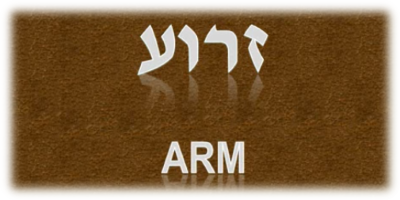Essential Points
The five Hebraic methods of learning are:
| Alaph | To learn by yoking | Association |
| Lamad | To learn by goading | Instruction |
| Yarah | To learn by pointing | Direction |
| Shanan | To learn by sharpening | Skills |
| Yacar | To learn by chastisement | Discipline |
Introduction
There are several Hebrew words which can be translated as "learn" into English. When we read the English text we will often come across words like learn, teach, instruct, discipline and chastise, but as we will see, these words do not give us an accurate meaning of these words from a Hebraic perspective and some of the meaning is "lost in the translation".
The Hebrew language is centered around the life of desert dwellers who live their lives as shepherds and farmers. In order to really understand the Hebrew words for learning, we will be looking at them as they did 4000 years ago.
Alaph
Oxen were very important to desert dwellers as a source of power, much as the tractor is to the modern farmer today. The Hebrew word for an ox is אלף (eleph, Strong's #504). A closely related word is the verb אלף (A.L.P, Strong's #502) meaning; "to yoke together."
When two oxen were placed together in a yoke for plowing, an older more experienced ox is placed alongside a younger inexperienced ox. The younger would then learn by association and example from the older. Hence, the word eleph can also mean "to associate with" or "to learn by example".
A man yoked to another will learn by example from the other. A child will also learn from his parents only by observing the actions of the parent. This can be either in a positive or in a negative way.
Make no friendship with an angry man; and with a furious man thou shalt not go: Lest thou learn [the verb A.L.P] his ways, and get a snare to thy soul. (Proverbs 22:24,25)
Lamad
The lemad is the staff of a shepherd, used to direct and control the flock. The verb למד (L.M.D, Strong's #3925) means "to direct" or "to learn by showing the direction".
Remember the day you stood before the LORD your God at Horeb, when he said to me, "Assemble the people before me to hear my words so that they may learn [the verb L.M.D] to revere me as long as they live in the land and may teach [the verb L.M.D] them to their children." (Deuteronomy 4:10)
Yarah
The next word we will look at is ירה (Y.R.H, Strong's #3384) meaning, "to throw" such as a rock or arrow as in the following passage:
And I will shoot [The verb Y.R.H] three arrows on the side thereof, as though I shot at a mark. (1 Samuel 20:20)
This can also be a figurative "throwing of the finger" meaning to point as in the following passage:
And the people murmured against Moses, saying, What shall we drink? And he cried unto the LORD; and the LORD showed [The verb Y.R.H] him a tree, which when he had cast into the waters, the waters were made sweet: there he made for them a statute and an ordinance, and there he proved them. (Exodus 15:24,25)
It can also mean "to learn by pointing out the way".
And the LORD said unto Moses, Come up to me into the mount, and be there: and I will give thee tables of stone, and a law, and commandments which I have written; that thou mayest teach [The verb Y.R.H] them. (Exodus 24:12)
It is the responsibility of the parent to point the way to the children. This means all aspects of life, by pointing the way to God, a career, a moral lifestyle, etc. When a rock is shot from a sling, it is shot at a target. Likewise, the direction which a parent points out to his child must be at a target. This target is always obedience to God.
Shanan
The next word which we will look at which is usually translated as "learn" or "teach" is שנן (Sh.N.N, Strong's #8150). This word literally means "to make pointed," or "to sharpen" such as a knife or sword.
When I sharpen [the verb Sh.N.N] my flashing sword and my hand grasps it in judgment, I will take vengeance on my adversaries and repay those who hate me. (Deuteronomy 32:41)
A dull knife will not cut. Hence, we take our knife and sharpen it on a stone so that it will be ready to perform the work it must do properly. This sharpening process is careful and sometimes time consuming. The verb Sh.N.N can also refer to the careful sharpening of your children's skills.
And these words, which I command thee this day, shall be in thine heart: And thou shalt *teach them diligently* [The verb Sh.N.N] unto thy children, and shalt talk of them when thou sittest in thine house, and when thou walkest by the way, and when thou liest down, and when thou risest up. (Deuteronomy 6:6-7)
Yasar
The verb יסר (Y.S.R, Strong's #3256) literally means "to turn the head" or "to turn to another direction". This word can be translated as chastise or discipline.
Correct [The verb Y.S.R] thy son, and he shall give thee rest; yea, he shall give delight unto thy soul. (Proverbs 29:17)

Like what you’re discovering? Continue the journey from Bible reader to translator.
|






